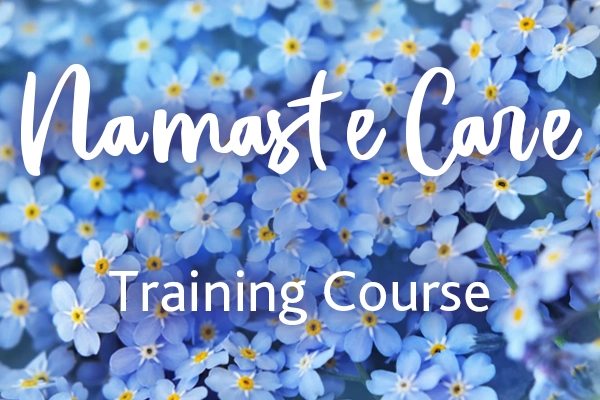
Caring for individuals with advanced dementia or those nearing the end of life requires a compassionate, personalised approach that addresses their unique needs. The Namaste Care Programme offers a ground-breaking solution that focuses on improving the quality of life for people with dementia through sensory activities, connection, and presence. This programme is especially critical in palliative care, where non-verbal communication and compassionate care can make a profound difference in the well-being of individuals and their families.
What Is the Namaste Care Programme?
Originally developed by Joyce Simard, the Namaste Care Programme was created for individuals with advanced dementia and has been embraced globally as a key strategy in end-of-life care. It is designed to ensure that every individual receives a personalised care plan that supports both their physical and emotional needs. Namaste Care focuses on:
- Sensory activities for dementia: Using gentle touch, sounds, and sights to soothe and engage individuals.
- Non-verbal communication: Facilitating connection through intentional presence and sensory stimulation, crucial for those who may no longer communicate verbally.
- Comfort and connection: By tailoring activities and environments, carers create a peaceful and supportive space for those in their final stages of life.
Addressing the Needs of People with Advanced Dementia
For people living with advanced dementia, the Namaste Care Programme provides an individual care programme that prioritises comfort and dignity. This approach can be easily adapted and applied to people with other end-stage diseases, making it a versatile tool in palliative care settings. As a personalised, compassionate care model, Namaste Care enhances the experience for both the person receiving care and their loved ones by offering emotional support and improving the overall environment.
The Role of Namaste Care in Care Homes
Care homes play a vital role in delivering dementia end-of-life services. The Namaste Care Programme equips carers with practical skills to connect with residents who may be otherwise challenging to reach, especially those in the final stages of life. The programme has received overwhelmingly positive feedback from previous participants, many of whom reported that they were able to better engage and comfort their residents after completing the training.
Why Namaste Care Is Crucial Post-COVID-19
The COVID-19 pandemic has deeply impacted care for the elderly, particularly those with dementia. Restrictions in care homes have created barriers to physical presence and connection, often leaving residents feeling isolated. The Namaste Care Programme teaches caregivers how to enhance the physical environment and maintain connection despite these challenges, offering essential support during these difficult times.
Upcoming Namaste Care Online Training Programme
If you’re a caregiver or work in a care home, consider enrolling in the upcoming Namaste Care Online 3-Day Training Programme to deepen your understanding of this transformative approach. The course will take place on the following dates:
- Tuesday, 15th October 2024
- Tuesday, 22nd October 2024
- Tuesday, 29th October 2024
For a fee of £170 per person (or £290 for two people), participants will gain practical knowledge to bring comfort and connection to individuals living and dying with advanced dementia. This course is restricted to just 24 people to ensure an intimate, focused learning environment.
Transforming Dementia Care—One Life at a Time
The Namaste Care Programme is changing the landscape of dementia care by offering innovative solutions that improve both the quality of life for residents and the caregiving experience. If you’re interested in learning more, or if you have any questions, don’t hesitate to reach out to Fiona Irvine at fiona.irvine@ayrshirehospice.org or Lorna Reid at lorna.reid@ppwh.org.uk.






Share Article